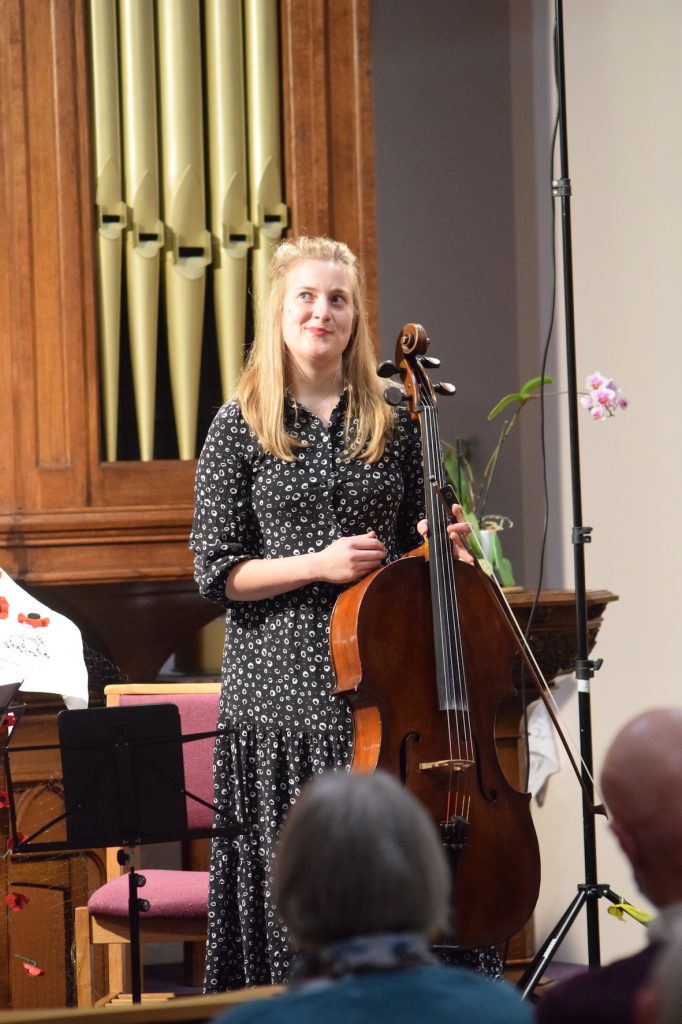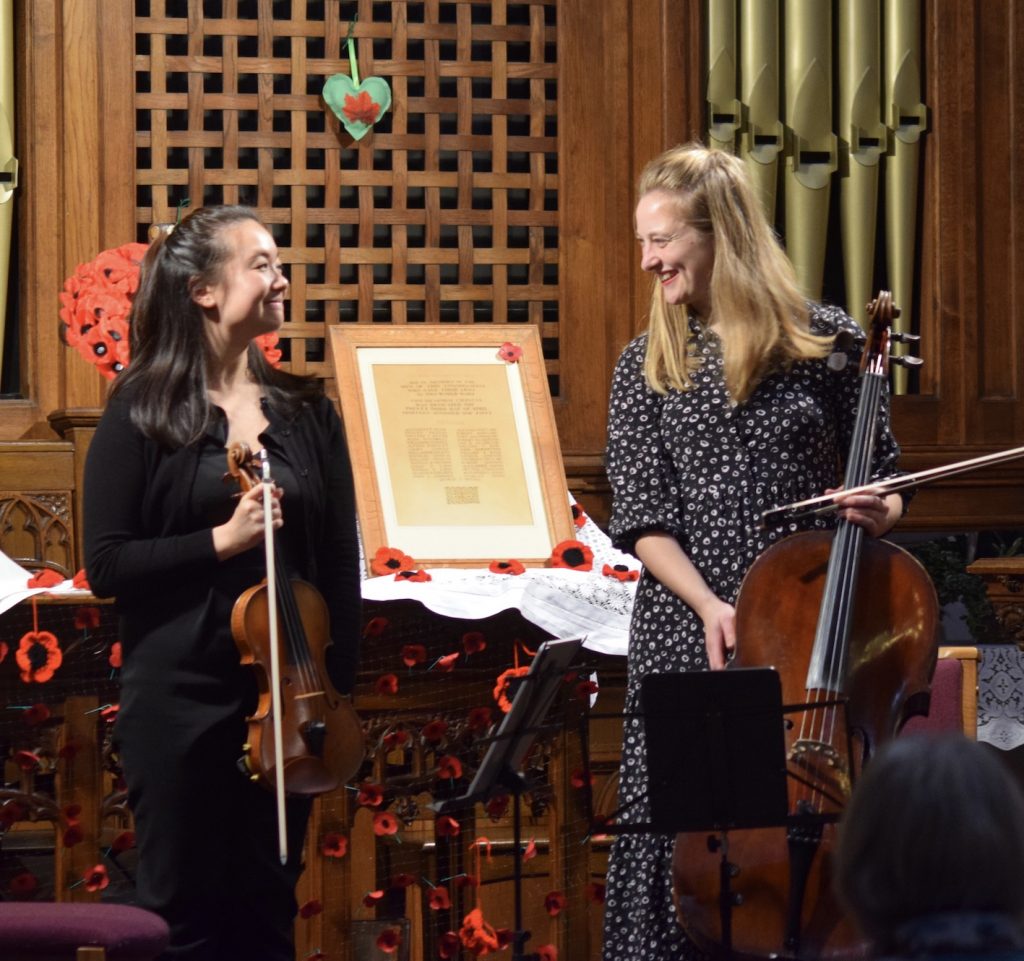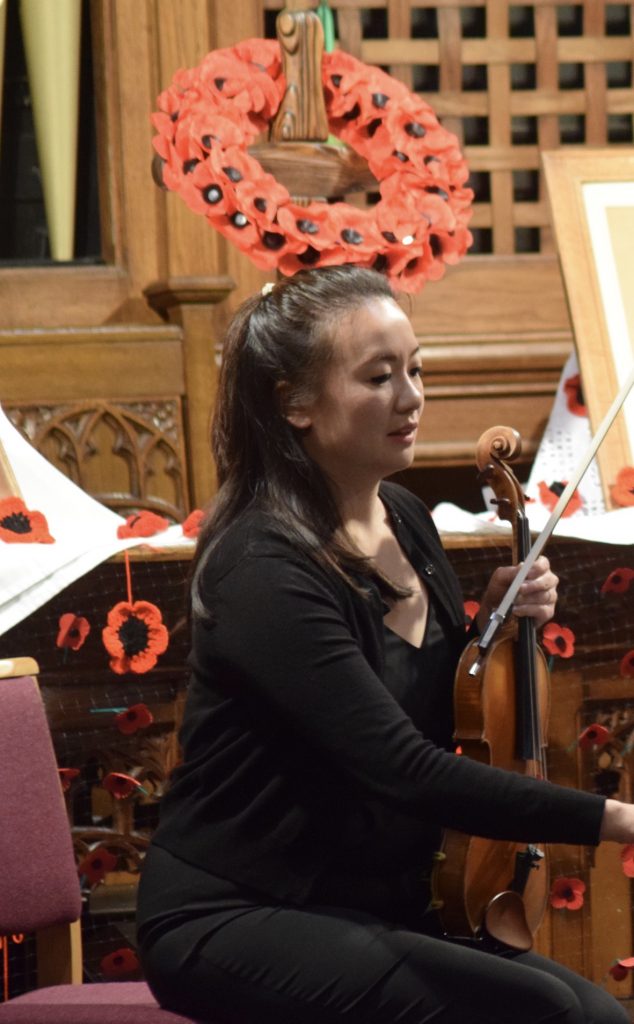
GAIA gave a lively performance at the Acorn Centre for the second concert in the 2021 – 2022 season.
Find out more about GAIA (Katrina Lee and Alice Allen) here.


Programme Notes
Duncan Strachan (b. 1987): Thirteen Ways of Looking at A Blackbird
Thirteen Ways of Looking at A Blackbird is a duo for violin and cello based on Wallace Stevens’ 1917 poem of the same title, which is broken into thirteen very short verses. Each one gives a different perspective on the subject (the blackbird), the perceiver, and the environment in which the blackbird is perceived. I have wanted to explore the poem in musical form for many years. The piece, composed in lockdown in 2020, as a global pandemic ran riot and I sat at home awaiting the arrival of my daughter into the world, provided me with an opportunity to focus on the simple, the commonplace, the everyday, and to consider it from multiple perspectives. In that spirit of different perspectives, the cello’s lowest strings are detuned by a tone, and both the number of, and the order in which the miniature movements can be played, is left to the performer. The piece also draws on several traditional songs from Scotland which take the Blackbird as their theme; these are woven into the piece in various ways, bringing together human song with bird song and ruminating on the beauty and wisdom of the everyday and the commonplace. (DS)
Read the poem here.
Edmund Finnis (b. 1984): Sister
This work was written in 2012 and received its world premiere in August of that year at the Seiji Ozawa Hall, Tanglewood, Lenox, Massachusetts. In a review written earlier this year, it is said that Sister ‘was written as part of a workshop/residency where he was expected to write a new piece every day, which meant there was no time to worry and fret, the piece had to be written. The result was rather touching, and full of intriguing sounds and textures’. https://www.planethugill.com/2021/07/manchester-collective-premiere-new.html
Rebecca Clarke (1886 – 1979): Lullaby and Grotesque
Two short pieces by Rebecca Clarke, a British-American composer and violist, whose work has been noted for its compositional skill and artistic power. Laurence Vittes noted in Gramophone that Clarke’s ‘Lullaby’ was ‘exceedingly sweet and tender’ and, on a more informal note, a YouTube comment about Grotesque calls this work ‘enigmatic and fun’.
Sally Beamish (b. 1956): Stone, Salt and Sky
1. Processional – 2. Horizon – 3. Harbour Blues
When Gaia asked me to write a duo for them, we discussed what kind of piece it might be. They were keen on a contemporary take on Scottish traditional music, and also mentioned that the premiere was planned to be at the St Magnus Festival in Orkney. This led me to think about the distinctive landscape of Orkney, which I have grown to love deeply over the years, and also Orkney’s long history – with a legacy of ancient stones and settlements, and a strong link with Norway, and with the sea. I have reflected the colours and open spaces of Orkney, and its music, as well as referencing other musical genres, for instance bluegrass and blues. The first movement opens with stamping feet, and a ‘trumpet’ call. The music suggests outdoor processions and ceremonies throughout Orkney’s history. The second movement is inspired by Orkney’s wide horizons, and also by Norwegian Hardanger fiddle playing. The last movement is a blues-infused rhythmic dance – maybe even a sea shanty – using chopping techniques, harmonics and pizzicato.
Stone, Salt and Sky was commissioned by Chamber Music Scotland for Gaia, and first performed on 20th May 2021 as part of the St Magnus online festival, by Gaia: Katrina Lee and Alice Allen. (SB, 2021)





Comments: no replies